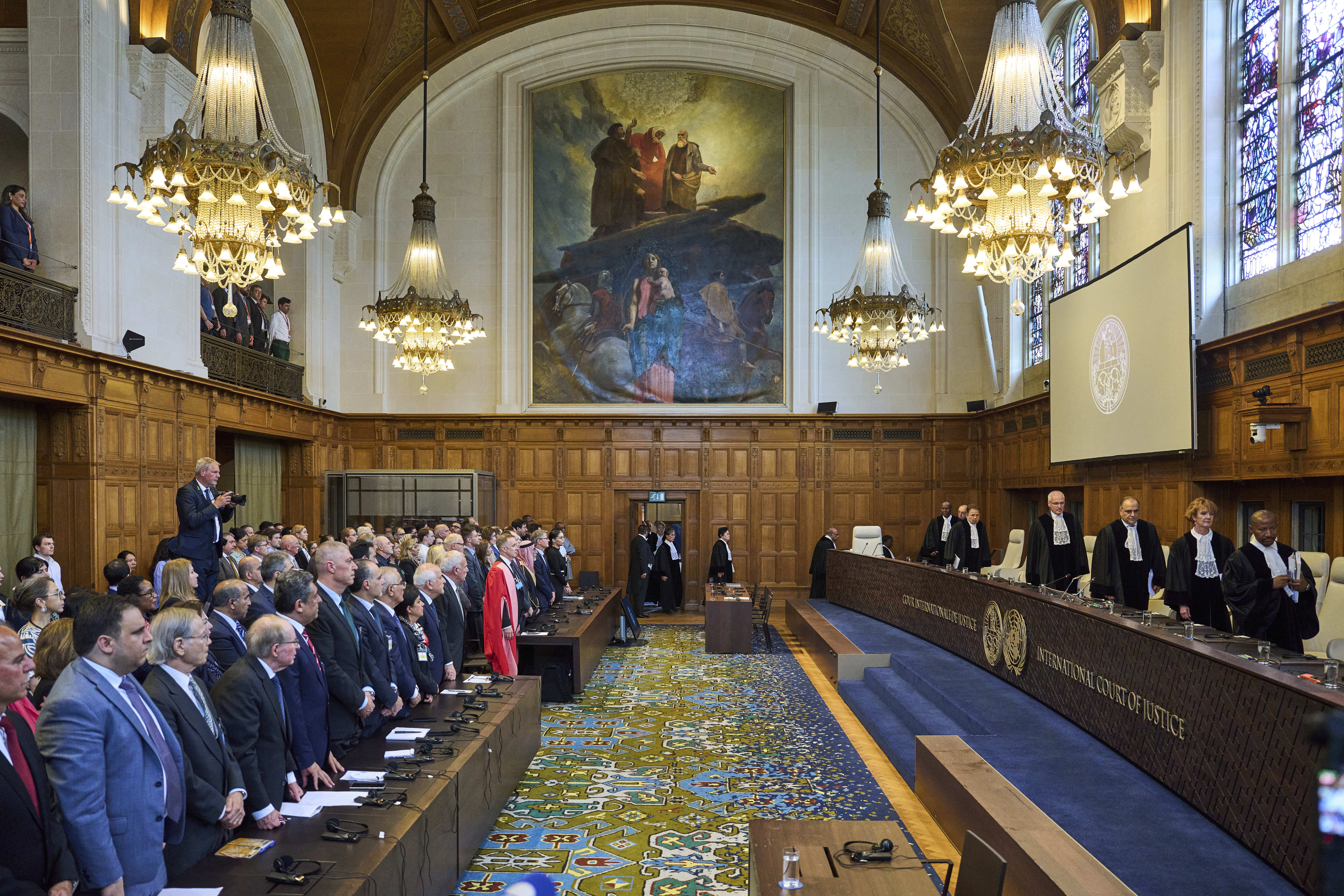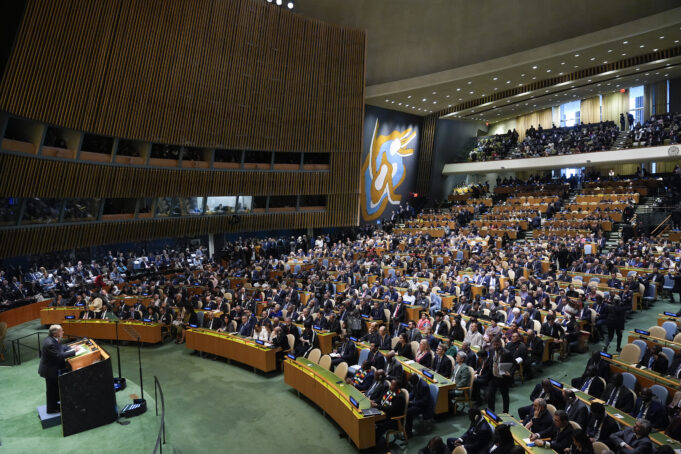“I have to tell you; the United Nations is powerless. And I’ll say it here, from this podium: The United Nations is finished,”—The Honorable Minister Louis Farrakhan, “What Does Allah The Great Mahdi and The Great Messiah Have To Say About The War In The Middle East?” Saviours’ Day, February 25, 2024
World leaders recently gathered in New York City for the 79th Session of the United Nations General Assembly (UNGA 79). They convened under a dark cloud of a world steadily unraveling with conflicts, chaos, and uncertainty.
The theme for the conference held Sept. 24-30 was “Leaving No One Behind: Acting Together For The Advancement of Peace, Sustainable Development and Human Dignity For Present and Future Generations.”
However, despite the “forward-looking” theme and the usual “pomp and circumstance” of official ceremonies, sideline meetings, and radiant speeches about making progress toward 2030 Agenda goals for Sustainable Development, Peace and Prosperity, also prominent were the clear expressions of perplexity to solve the global challenges the leaders gathered to discuss.
“Our world is heading off the rails—and we need tough decisions to get back on track.” said UN Secretary-General Antonio Guterres, in his opening “State of the World” address, which called on needed change at the world body.
“I have no illusions about the obstacles to reform of the multilateral system,” said Mr. Guterres. “Those with political and economic power, or those who believe they have that power, are always reluctant to change,” he added.
“Without reform, fragmentation is inevitable, and global institutions will become less legitimate, less credible and less effective,” argued the secretary general.
“The ground is shifting under our feet. Anxiety levels are off the charts, and young people in particular are counting on us and seeking solutions,” said Mr. Guterres.
In an opening re-port, he said global peace and security faced significant challenges in 2023, with 2022 being the deadliest for war, according to Uppsala Conflict Data, which research wars.
“Conflicts raged in Gaza, the Sudan and Ukraine, among many other locations, destroying lives and livelihoods, displacing millions and straining our partners’ peacemaking and humanitarian capacities,” Mr. Guterres added.
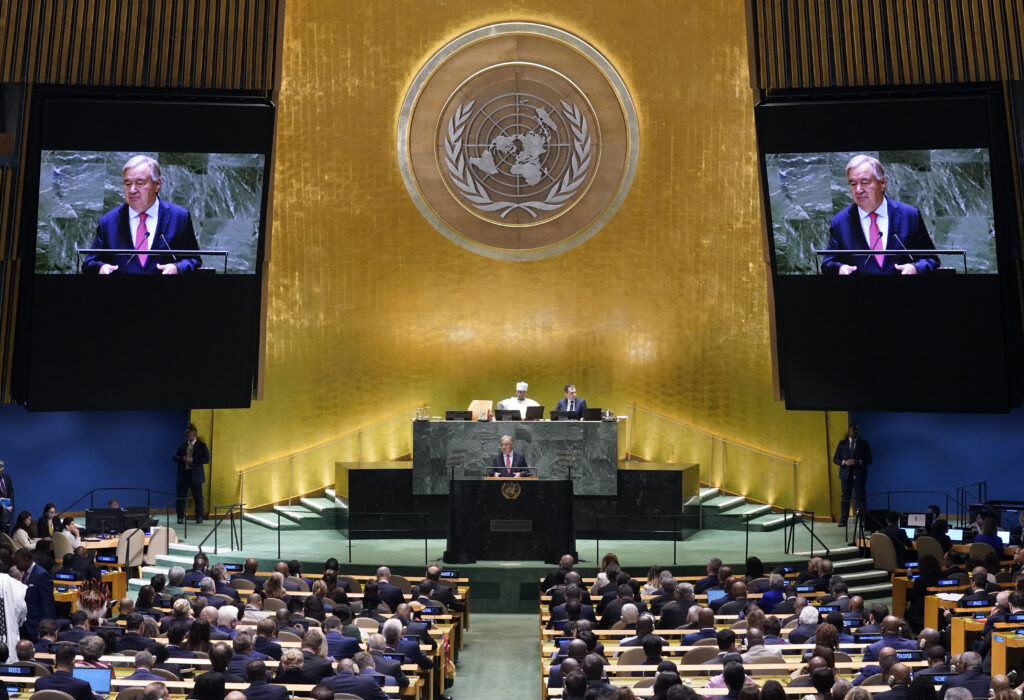
In the 79 years of the UN’s existence, grave challenges still endure. Incessant wars are raging, there are worsening weather disasters, a rising threat of terrorism, soaring inequalities, and global pushback against human rights and gender equality.
In addition, with the advent of Artificial Intelligence (AI), the world faces a heightened risk from underregulated development of technologies. The global outlook remains daunting and in decline.
Leaders call for reform
From the Assembly Hall podium, leader after leader detailed the levels of trouble besetting the nations of the earth. Among myriads of points, were calls for major reform of the UN body.
“We need a reset. And we need to reset,” said Mia Mottley, prime minister of Barbados. “Those of us here today representing our brothers and our sisters the world over have endured four years of poly-crises,” she said, highlighting the ongoing crises in climate, pandemics, wars, and unequal power dynamics.
Stressing the need for inclusive and responsive global institutions, Ms. Motley said there must be an end to “discrimination” and “neocolonialist structures that perpetuate and reflect an old-world order characterized by racism and classism and misogyny,” while ignoring the legitimate aspirations of billions of people.
“If ever there was a time to pause and to reset, it is now,” she reiterated.
The reset must also be characterized by institutional reform of the UN where some countries are “full members” and others are “only part members,” and some may be “part-time,” and “occasional members,” said Ms. Mottley, adding, “All of this has no place in the 21st century.”
Representing a Caribbean nation, she added Barbados’ voice to the chorus advocating developing countries have seats at the table of decision-making where they can be seen, heard, and become active agents in their own cause and lead their own development paradigms.
There are growing calls for Africa to be granted two permanent seats on its Security Council initially created by the victors of World War II. At the time, most of the African continent was still under colonial domination.
As the organ whose primary responsibility is maintaining international peace and security, the Security Council consists of five permanent members with veto powers—the United States, Russia, China, France, and the United Kingdom—and 10 non-permanent members. With five powers controlling the decisions of a 193-member organization, many nations argue that the arrangement is inherently unequal.
Brazil’s President Luiz Inacio Lula da Silva called for a major overhaul of the UN, including a critical re-examination of its nearly 80-year-old Charter. He lamented that it is a “weakening of our collective capacity for negotiation and dialogue” to effectively address the current crises and the paralysis of the UN.
“We are living in a time of growing anguish, frustration, tension, and fear,” said Mr. Lula da Silva.
He stressed the need for a new governance structure to prevent another world tragedy like World War II. “We cannot wait for another world tragedy like the World War II, to only then build a new governance on its rubbles,” he said.
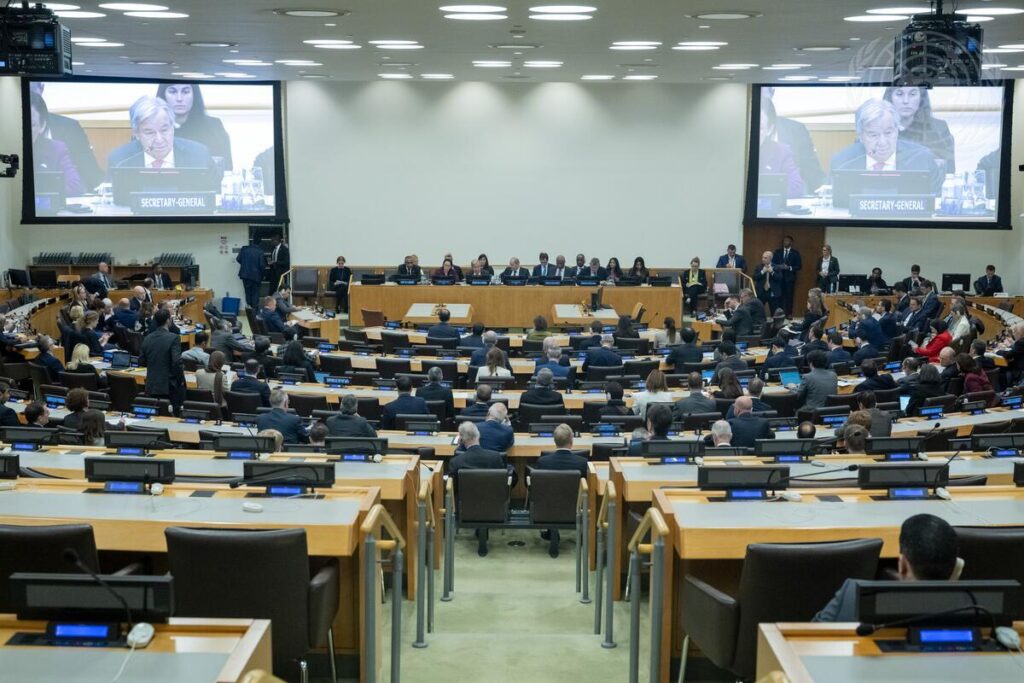
Some of the strongest criticism came from Türkiye President Recep Tayyip Erdoğan who said the UN has failed to fulfill its founding mission after the bloodbath of the Second World War and has become dysfunctional. “With the establishment of the United Nations, expectations for global stability, peace and justice were reborn,” said the Turkish president.
“To put it bluntly,” he continued, “unfortunately, in the last few years, the United Nations has failed to fulfill its founding mission and has gradually become a dysfunctional structure,” said Mr. Erdogan.
Turning to the structure, he said: “The world is bigger than five is my motto … my credo … international justice cannot be left in the will of five privileged member states of the Security Council,” he said.
According to the UN Charter, it was formed “to save succeeding generations from the scourge of war,” maintain international peace and security, and prevent and remove any threats to peace. However, since the inception of the UN in 1945, wars and turmoil have persisted.
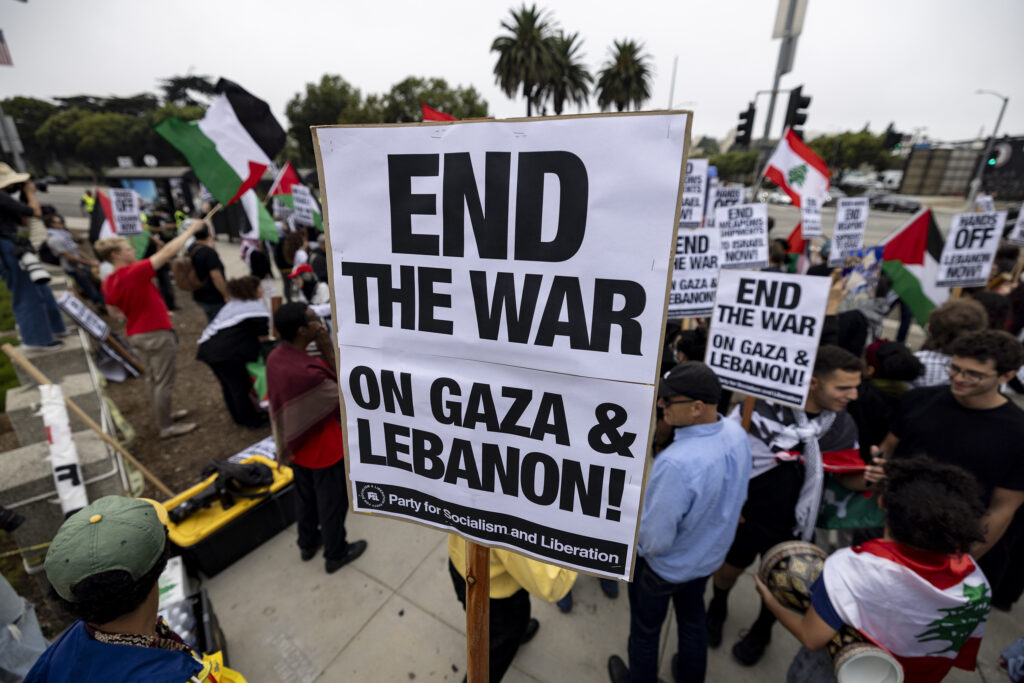
The drumbeat of war plays on
In the Caribbean, foreign-induced turmoil wracks Haiti. In the Americas, Venezuela is battling sanctions and outside interference from the United States seeking regime change. In Africa there is a yearslong war in the Democratic Republic of The Congo where scores of people continue to die.
Besides that, a civil war in Sudan is producing one of the worst humanitarian crises to date. Then there is lingering trouble with extremist groups attempting to unhinge Africa’s Sahel region, also affecting a swath of countries from East to West.
In Eastern Europe, the Russia-Ukraine war raging since 2022 is not letting up. There is a possibility of other Western nations being pulled in, potentially sparking World War III, referred to in scripture as the War of Armageddon.
Meanwhile, in the Middle East, a genocidal war by the Occupier State of Israel has taken more than 41,000 lives of Palestinians and counting, maimed more than 94,000, and missing, buried in the destruction, and presumed dead, thousands of more people. Additionally, as the leaders gathered, Israel, with the expressed backing of the U.S. is at war with Hezbollah in Lebanon, where carnage is also mounting.
The world leaders mounted the podium calling for a new approach to global governance. The confusion of leaders and lack of results to halt war and stem the tide of world crisis after 79 years of conferencing exposes an ineptness and need for a new reality.
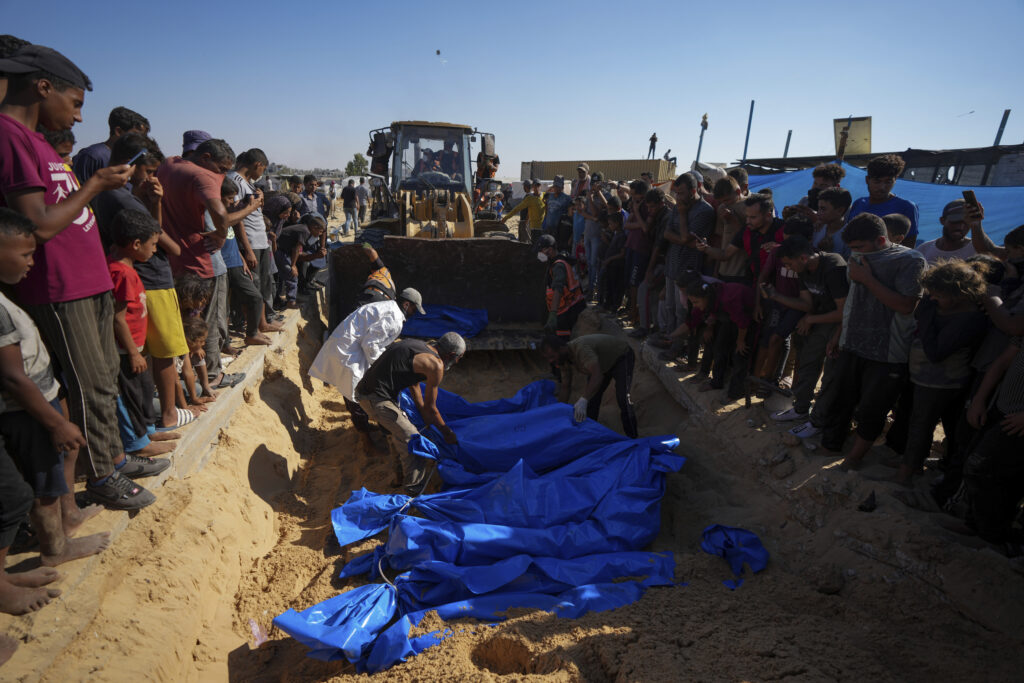
A divine solution and universal change
Some say the ineffectiveness of the UN bears witness that a time of universal change has arrived to sit down the leaders of war, injustice, tyranny, oppression, exploitation and corruption.
Justice advocates and freedom-loving people have a long history of resistance against the war-makers and oppressors before and after the advent of the UN in the aftermath of World War II in 1945.
Among the voices for balance and change are the Most Honorable Elijah Muhammad and his National Representative, the Honorable Minister Louis Farrakhan of the Nation of Islam.
They warn that the world leaders have reached an impasse to find solutions and pathways to peace. In the preface of his insightful book “Message to The Blackman in America,” the Honorable Elijah Muhammad explains the time and what must be done concerning global conditions.
“As we near the exhaustion of the wisdom of this world, which has not been able to shed enough light on our path in search for that Supreme Wisdom to keep us from stumbling and falling, we now seek the wisdom of Allah, the Best Knower and Guide, in the Person of Master Fard Muhammad,” he wrote.
He was referring to his Teacher, who came to America from Mecca, Arabia, and made Himself known in July 1930 and who The Honorable Elijah Muhammad taught is the prophesied Messiah of the Christians and Mahdi of the Muslims.
Both the Honorable Elijah Muhammad and Minister Farrakhan described the time as an “old world going out” and a “new world coming in” directed by God, and the confusion of world leaders should be understood in that context.
“Tyrants of the world have to be sat down and a government from God has to be established so that the suffering of humanity will end,” Minister Farrakhan shared in January 2017 on Twitter, the social media platform now called X. The Minister’s remark is one of many he has given over decades of cautioning the world leaders about the dire consequences of their decisions.
Collectively for 93 years, Minister Farrakhan and his teacher forewarned of a “Universal Government of Peace” being established to eradicate the burden of corruption, injustice, inequality, and misrule on the planet.
In his Saviours’ Day 2024 message on February 25 in Detroit, Minister Farrakhan said because of the power of the veto, “America is canceling the UN.” and perpetuating the impotence of the organization to effect change.
“But The God that I represent? Oh, He wants you to know that He is come to set all the rulers down. He has come to take over the rule of America, of the world, as only God should do,” said Minister Farrakhan.










